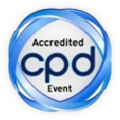
Michael Drues
Vascular Sciences, USA
Title: Communication with FDA: what do we say and how do we say it? â„¢
Biography
Biography: Michael Drues
Abstract
All medical companies are required to communicate with FDA but most do not do it well. Don’t think so? Consider this: 70-75% of FDA submissions are rejected by FDA first time out of the box. So if we are communicating effectively how do explain this? Effective communication with FDA is critical in successfully bringing any therapeutic product to market. However, communication includes much more than the written regulatory submission. Effective communication in all its forms must be concise, carefully considered, and reviewed to achieve the desired outcome. One must ask several questions before engaging in correspondence with FDA. When are we required to communicate with FDA? More importantly, when should we communicate with FDA? What should we say and how should we say it? What should we not say and how should we not say it? It’s not what you say that matters – it’s what people hear! Using the case study approach, all of these questions and others will be answered in an interactive fashion, including:
- When are we required to communicate with FDA? When should we? Is it ever too early?
- What should we say and how should we say it? What should we not say and how should we not say it?
- Who should communicate with FDA and who should not? When should it be verbal, and when in writing?
- When should we communicate formally vs. informally?
- How do we avoid timely and costly mistakes and how can we use creative ways to use communication with FDA to our advantage!
Using case studies from a variety of clinical specialties, all of these and more will be discussed in this interactive webinar. Strategies for using regulation as a competitive advantage will also be discussed.

